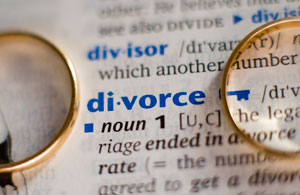What to Expect When Facing Divorce: A Family Perspective
By: Rochelle Perper, Ph.D. | February 19, 2013

Divorce is a life changing event and typically a painful process for all concerned. Families experiencing divorce are in a process of transitioning to a new family structure. The impact upon the child and family during this time is profound and requires care and attention. Therapy can be helpful during this time to mobilize a family’s strengths and help children and parents deal constructively with the process.
The information presented below is designed to guide you through the process of divorce. However, it is important to recognize that no one situation is alike and individualized care should be made for each unique family situation.
Common Reactions
While parent’s reactions may range anywhere from feeling devastated to relieved, children typically feel fear and confusion. Children may believe that they have caused the conflict between his or her parents and may even attempt to bring parents back together. Some parents might feel so hurt or overwhelmed by the separation or divorce that they turn to their child for comfort or direction. During stressful times both parents and children are vulnerable to physical and mental illness. Parents should be aware of signs of distress for themselves and their children. It is common for families in transition to experience difficulties with interpersonal relationships as well as in school and work.
Protective Factors
Adjustment for parents through separation or divorce depends highly upon: 1) having a strong external support system, 2) adopting a cooperative belief about the meaning of divorce, and 3) having established personal coping mechanisms. A child’s adjustment depends on: 1) a positive relationship with each parent, 2) predictability of schedule and routine, and 2) how well his or her parents are adjusting.
Consistency with the schedule
Children often handle their lives better when they are faced with predictable situations and environments. An agreement will be made regarding the amount of time that the child will spend with each parent. Children will benefit from knowing that the parent supports him or her leaving to spend time with the other parent. It is recommended that parents make a calendar with their child and remind them that they are leaving the day prior to the visit. The parent who moved out of the family home should make efforts to create a comfortable environment for his or her child. A special area just for the child will give them a sense that they belong.
Parents Message to Children
Parents’ ongoing commitment to the child’s well-being is vital during the process of separation or divorce. Children will do best if they know that their mother and father will still be their parents and remain involved. Divorce can be misinterpreted by children that can lead to internalized guilt or outward distress. Parents are encouraged to directly (and jointly, if possible) communicate in a calm, reassuring way to children what is happening, how they are involved and not involved, and what will happen next.
Top 5 Tips for Parents
- Don’t put your child in the middle by asking them to take sides
- Don’t say bad things about the other parent around your child
- Don’t ask your child to carry messages to the other parent
- Let your child know: “It’s not your fault”
- Listen quietly and answer questions honestly
Top 5 Tips for Children
- Recognize that you owe and need both parents
- Don’t say bad things about the other parent
- Don’t carry messages between parents
- Don’t take sides
- Spend time with friends and have fun – it’s okay to be a kid!



